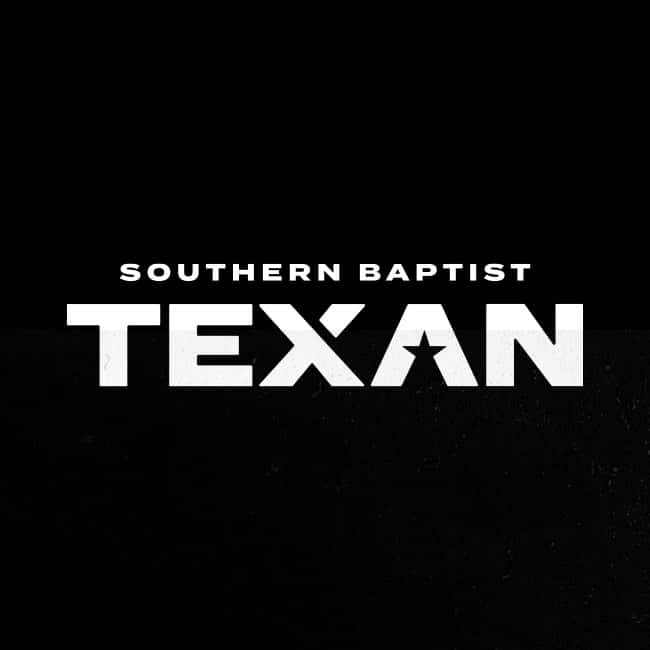GRAPEVINE—In the midst of ongoing racial tension within the body of Christ and the Southern Baptist Convention, Tony Mathews, SBTC interim senior strategist for Missional Ministries, asked himself, “What can I do?” In his 34-year pastoral career, Mathews had focused on bringing people together and breaking down barriers. In his new SBTC role, he decided to create an event to foster racial reconciliation.
Strengthening Racial Harmony, a panel discussion, will be held on Tuesday, April 13, from 1:30 to 3:00 p.m. in the multipurpose room of the Southern Baptists of Texas Convention building for in-person and online audiences.
Registration is open to the public.
“Pastors, church leaders, men, women, everyone is welcome,” Mathews, who will moderate the discussion, told the TEXAN. Mathews, who also pastors the predominantly African American North Garland Baptist Fellowship, said the event will be a conversation about strengthening racial relations between Black and white believers.
“Our purpose is to identify barriers and discuss factors that promote racial harmony,” Mathews told the TEXAN, adding, “Panelists were selected who desire to [do this], but who can also address the challenges with which we are met.”
Panelists scheduled to appear include Michael Criner, pastor of Rock Hill Baptist Church near Tyler; Todd Kaunitz, pastor of New Beginnings Baptist Church in Longview; Joe Ogletree, pastor of Image Church in Houston; Kasi Pruitt, adoption and foster care coordinator for Lakepointe Church, Rockwall; and Mike Satterfield, teaching pastor at Fielder Church in Arlington.
All have done significant work in encouraging racial harmony, Mathews said, noting that Pruitt will offer a unique perspective as a parent of a multiracial family. Satterfield and Ogletree, two African American pastors on the panel have worked “across the racial divide,” Mathews said, while Criner and Kaunitz are “in tune with the racial challenges.”
The discussion will focus on Black-Anglo relations, but future conversations are planned with other ethnic groups as well, he added.
“We have so much racial unrest in the body of Christ. It’s important to have harmony among all races. We are focusing on Blacks and whites first because [the SBC] has had Black pastors to leave,” Mathews explained.
The panel’s purpose will not be to debate Critical Race Theory and Intersectionality, but to examine how to focus on the issues with civility.
“We can agree to disagree and still be civil,” Mathews said. “I’m not naive. We have some real racial challenges. Instead of fighting, we have to find solutions … to co-exist and be about carrying out the Great Commission. We have to be reminded of that.”
Mathews said he hopes the discussion will suggest new ways to break down racial barriers and that all who hear will be inspired to cultivate healthy relationships with all people.
Mathews is, he said, a firm believer in “carefronting,” a term coined by David Augsburger more than four decades ago. “You have to sometimes carefront folks who are unaware of some of the racially-sensitive issues,” Mathews said, noting that often it is better to carefront than to confront.
Extremism must also be avoided, Mathews said, adding, “If you deny racism exists, that’s incorrect. But if everything is racism, nothing is racism.”
Calling Jesus our model for race relations, Mathews added, “Through his death, burial and resurrection, he wants unity. We’re humans. Racism is sin. We know that this is something we have to combat.”
Challenges abound. “As Christians we have to answer with Christ in our lives and the Holy Spirit guiding us,” Mathews said. Only then can we “really come together and help heal the hurts and challenges we have along racial lines. It’s going to take all of us to do it. We’ve got to come together.”
Division hurts and reconciliation is possible, he said, urging tolerance and forgiveness.
“God created us with distinctions. Distinctions can be celebrated without compromising doctrine,” he said, urging forgiveness: “Give people the benefit of the doubt. Let them talk. Give them space to make mistakes.”
Speaking as one who has pastored several races and ethnic groups, Mathews affirmed, “We’ve got more in common than not.”
With the April panel, Mathews hopes to get the reconciliation conversation going.
For more information on the panel discussion, or to register to attend virtually or in-person, visit sbtexas.com/racialharmony. In-person attendance may be limited, depending upon COVID-19 protocols.














